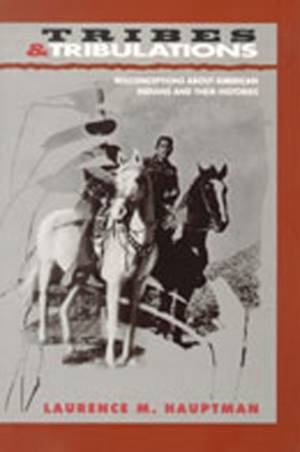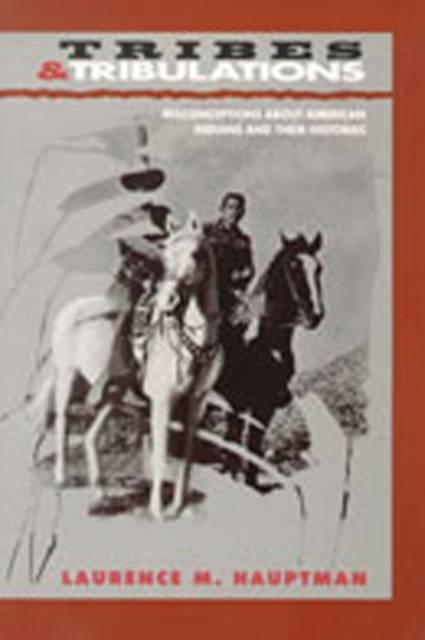
- Retrait gratuit dans votre magasin Club
- 7.000.000 titres dans notre catalogue
- Payer en toute sécurité
- Toujours un magasin près de chez vous
- Retrait gratuit dans votre magasin Club
- 7.000.0000 titres dans notre catalogue
- Payer en toute sécurité
- Toujours un magasin près de chez vous
Tribes and Tribulations
Misconceptions about American Indians and Their Histories
Laurence M HauptmanDescription
Most Americans are misinformed about Native Americans and their history. In the nine essays in this volume, Laurence M. Hauptman, drawing on twenty-five years of teaching American Indian history, selects topics from the seventeenth century to the present as examples of some commonly held but erroneous views on Indian-white relations, including campaigns to pacify and Christianize Indians, policies of removal, and stereotypes of Indians as mascots for sports teams or Hollywood film sidekicks.
Some misconceptions arise from mistaken claims that pass as fact, such as the notion that the U.S. Constitution derived some of its concepts from the Iroquois. The misuse of terms such as genocide and paternalism has also obscured the experience of individual Indian nations or dulled perceptions about Anglo-American avarice. The tribal sovereignty guaranteed by treaties and, at the same time, Native Americans' United States citizenship have confused many who assume Indians receive special privileges.
Throughout the book, emphasis is given to Native Americans in the East, where a quarter of all Indians live today. Hauptman's knowledgeable and provocative analysis strips away wrong notions and replaces them with new insights and perspectives.
Spécifications
Parties prenantes
- Auteur(s) :
- Editeur:
Contenu
- Nombre de pages :
- 180
- Langue:
- Anglais
Caractéristiques
- EAN:
- 9780826315823
- Date de parution :
- 01-04-95
- Format:
- Livre broché
- Format numérique:
- Trade paperback (VS)
- Dimensions :
- 153 mm x 229 mm
- Poids :
- 267 g

Les avis
Nous publions uniquement les avis qui respectent les conditions requises. Consultez nos conditions pour les avis.






